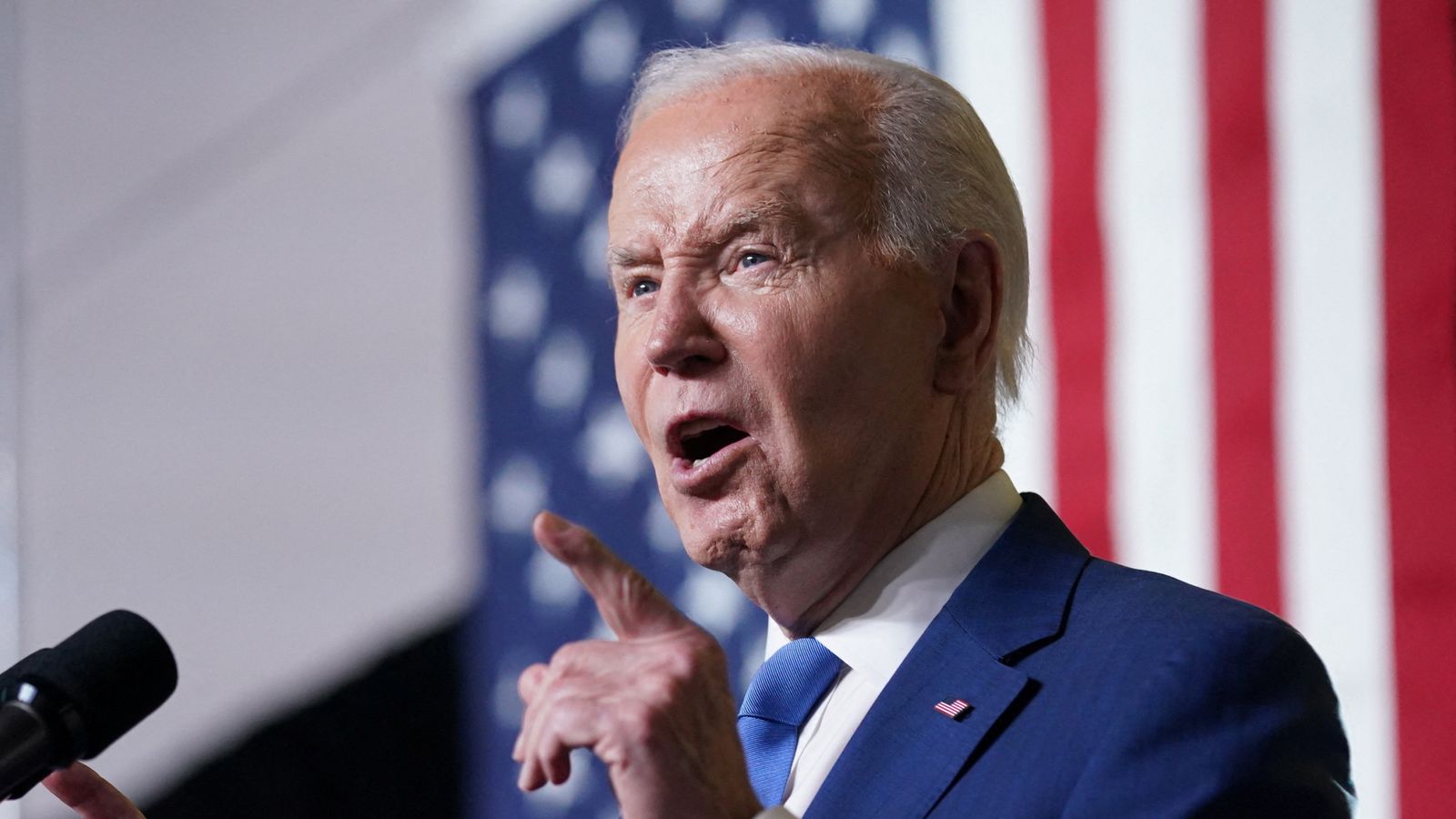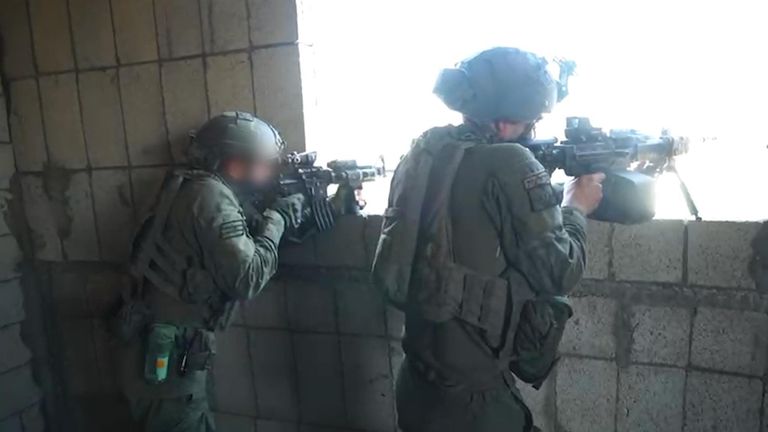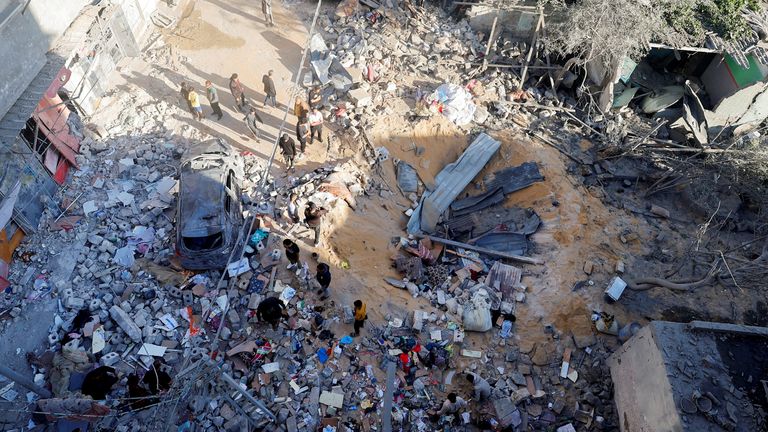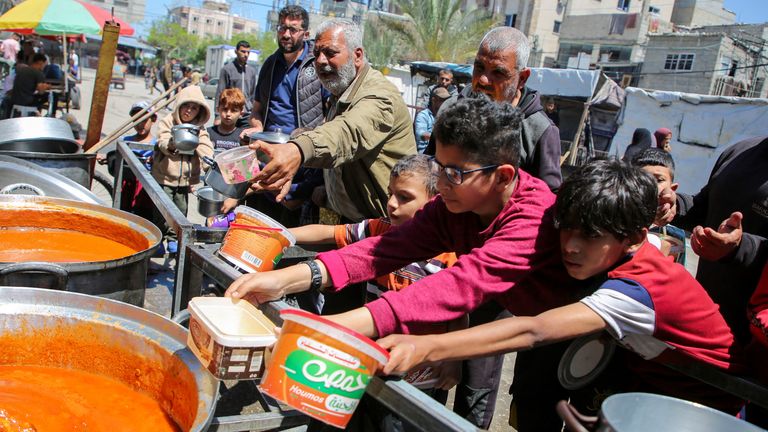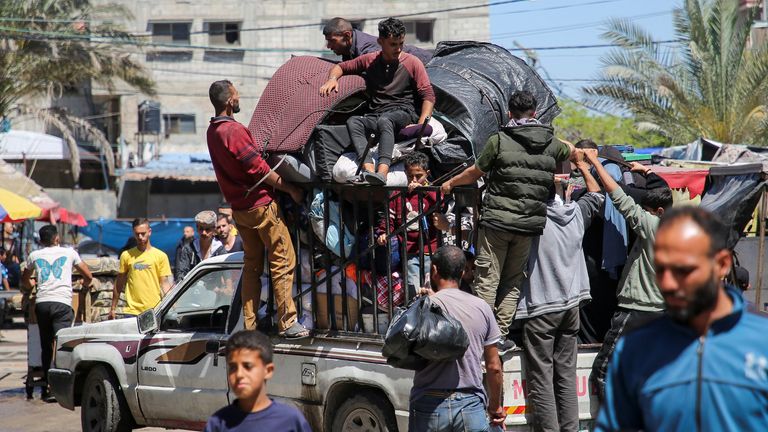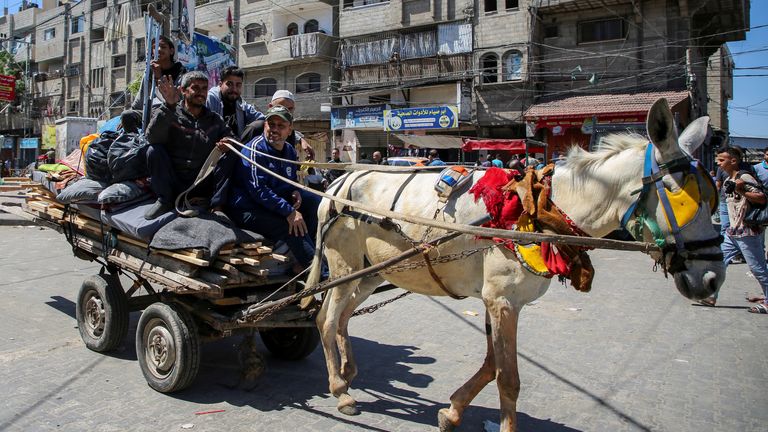President Joe Biden has warned Israel in his toughest public comments so far that the US would stop supplying it with some weapons if Israel invades the southern Gaza city of Rafah.
If Israeli forces launch an all-out assault on the city, the last major Hamas stronghold in the besieged enclave, the US president said “we’re not going to supply the weapons and artillery shells used, that have been used”.
In an interview with CNN, Mr Biden acknowledged US weapons have been used by Israel which have killed civilians in Gaza during its seven-month offensive aimed at destroying Hamas.
Middle East latest: Follow live updates
It comes after his decision last week to pause a shipment of heavy 2,000lb bombs to Israel over concerns about a looming attack on Rafah, following public and private warnings from his administration.
“Civilians have been killed in Gaza as a consequence of those bombs and other ways in which they go after population centres,” Mr Biden told CNN.
“I made it clear that if they go into Rafah – they haven’t gone in Rafah yet – if they go into Rafah, I’m not supplying the weapons that have been used historically to deal with Rafah, to deal with the cities, that deal with that problem.”
US Defence Secretary Lloyd Austin confirmed the weapons delay earlier on Wednesday, saying the US paused “one shipment of high payload munitions”.
“We’re going to continue to do what’s necessary to ensure that Israel has the means to defend itself,” Mr Austin said.
“But that said, we are currently reviewing some near-term security assistance shipments in the context of unfolding events in Rafah.”
Israel carried out military operations in Rafah earlier this week in what it described as “targeted strikes”.
Read more:
Not much Biden can do to stop his Rafah red line being crossed
Netanyahu’s choice: Accept ceasefire or gamble on Rafah incursion
Sunak to meet university bosses to discuss rise in antisemitism
Mounting death toll
Nearly 34,800 Palestinians, mostly women and children, have been killed so far in Gaza, according to the Hamas-run health ministry. It does not differentiate between civilians and combatants.
The war began when Hamas stormed into Israel on 7 October, killing around 1,200 people and abducting about 250 others, of whom 133 are believed to remain in captivity, according to Israeli tallies.
US will still supply defensive systems
Mr Biden told CNN the US would continue to provide defensive systems to Israel, including for its Iron Dome defence system.
“We’re going to continue to make sure Israel is secure in terms of Iron Dome and their ability to respond to attacks that came out of the Middle East recently,” he said.
“But it’s, it’s just wrong. We’re not going to – we’re not going to supply the weapons and artillery shells.”
It comes as Mr Biden’s administration is due to deliver a formal verdict this week, the first of its kind, on whether Israeli airstrikes on Gaza and restrictions on the delivery of humanitarian aid have violated international and US laws.
A decision against Israel would heap further pressure on Mr Biden to limit the flow of weapons and money to Israel’s military.
